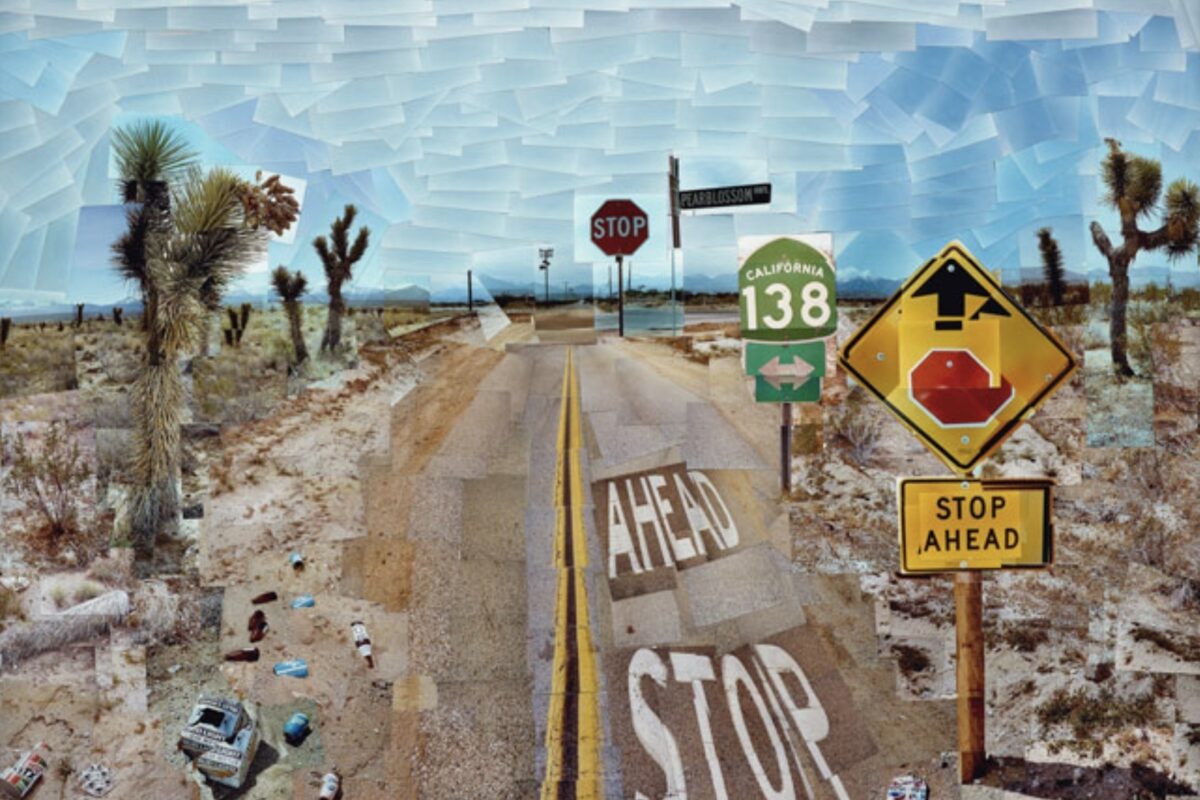From mass orgies to rooms packed with polka dots, the works of Yayoi Kusama have always broken the mold. Despite turning 93 this year, she continues to bring her unique way of thinking to the world through her Infinity Mirror Rooms, many-dotted pumpkins and intricate paintings. Below, we round up some of her most memorable moments to date…

Kusama’s Peep Show or Endless Love Show. Installed at Castellane Gallery, New York, 1966.
Hirshhorn Museum
The queue-for-access show
Sometimes you wake up and have to see the polka dots: that seems to be the rationale behind the no-advance-tickets policy for One With Eternity, Kusama’s forthcoming show at Washington’s Hirshhorn Collection. To get around the frenzied pre-purchasing that’s accompanied Kusama shows at London’s Tate Modern, LA’s The Broad and others, you’ll only be able to book your slot in person – from 9.30am on the day of your visit (unless you’re a member of the gallery).
The Hirshhorn is a champion of Kusama’s work and owns two Infinity Mirrored Rooms and five other pieces that will feature in the show: one of the rooms, Infinity Mirrored Room – My Heart Is Dancing Into The Universe was only acquired this year and is among the artist’s trippiest, packed with glowing polka-dotted orbs. It’s well worth what will inevitably be a very long wait.

Yayoi Kusama, Infinity Mirrored Room—My Heart Is Dancing Into the Universe, 2018.
COURTESY YAYOI KUSAMA; OTA FINE ARTS, TOKYO/SINGAPORE/SHANGHAI; VICTORIA MIRO, LONDON/VENICE
The pumpkin that blew away
Though Kusama’s fairytale Infinity Mirrored Rooms probably win the prize for most-Instagrammed artworks of all time, there’s another piece that comes a close second. Pumpkin, a huge plastic sculpture that sat placidly on the pier of the Japanese island of Naoshima from 1994 onwards, attracted tourists in their droves (Naoshima has reimagined itself as an art capital, littered with pieces from Monet, David Hockney and Gerhard Richter). However, the vegetable suffered a terrible accident in 2021, when it was swept into the sea by a typhoon (the event was, of course, documented on Instagram). Though Pumpkin was rescued, it’s thought to be damaged beyond repair, with rumours circulating that it will eventually be replaced.


'Pumpkin' was installed on the art-centric island of Naoshima in 1994, and had attracted art lovers and Instagrammers alike, even as it was swept out to sea by a typhoon.
screenshot of video by taka aoki
The pick-your-own disco ball field
What’s the most kick-ass thing you can do as an artist? Probably break into the Venice Biennale and set up your own installation. That’s exactly what Kusama did back in 1966, when she packed the area outside the Italian Pavilion with more than 1,500 mirrored orbs for a work entitled Narcissus Garden. The stunt, which followed a refusal to allow her to show officially in the Japan pavilion, was way ahead of its times in terms of interactivity: Dressed in a shimmering kimono, Kusama invited viewers to buy her disco balls for $2 each. Interpreted variously as a commentary on the commercialisation of art or a ploy to invoke self-love, the stunt saw Kusama banned from performing at the event (she finally returned as an official participant nearly 30 years later, in 1993).

Yayoi Kusama with 'Narcissus Garden' installed at the Venice Biennale, 1966.
Courtesy YAYOI KUSAMA; Ota Fine Arts, Tokyo/Singapore/Shanghai; David Zwirner, New York.
Narcissus Garden has been recreated in many different incarnations since, perhaps most dramatically at the abandoned army base of Fort Tilden in Queens back in 2018, where the silver balls reflected the decaying surroundings to form a work of unexpectedly exquisite beauty.

Rockaway! 2018 featuring a site-specific installation of Narcissus Garden.
Courtesy Yayoi Kusama, Ota Fine Arts, Tokyo/Singapore/Shanghai; Victoria Miro, London/Venice; and David Zwirner, New York. Photo: Pablo Enriquez
The penis-covered furniture
Kusama has talked repeatedly about the process of ‘obliteration’, erasing herself through the use of repetitive shapes (often polka dots). But one of her earliest uses of the term was back in 1962, to refer to Accumulation No. 1, her first ever soft sculpture, which consisted of a chair covered in a multitude of phalluses. With every spare millimetre hidden by protuberances fashioned from cloth, the chair was part of a phase in which the artist used the same material to cover bookcases, step ladders and even mannequins (allegedly inspiring Claes Oldenburg amongst others). The representation of phalluses in Kusama’s work references a long-held phobia of sex which stems from her disturbed childhood.


Accumulation No. 1, 1962 / Compulsion Furniture (Accumulation) c.1964.
Moma; Ota Fine Arts, Tokyo; Yayoi Kusama Studio Inc.
The pandemic poetry
Besides paintings and sculpture, Kusama also has another creative outlet: poetry. Sporadically publishing words as well as pictures, she uses it to express both her alienation and, more recently, her incredible capacity for love and celebration of life. Since Kusama returned to Japan in the 1970s to live in an institution (and particularly in the last five years or so), her work has become noticeably more optimistic – a fact clearly illustrated in a poem she created back in 2020 in response to the coronavirus pandemic. In it, she urges, “It is time to seek a hymn of love for our souls
In the midst of this historic menace, a brief burst of light points to the future
Let us joyfully sing this song of a splendid future
Let's go”.
In the same year, Kusama published Every Day I Pray For Love in conjunction with David Zwirner gallery. A collection of paintings, photographs and poetry, it illustrates the cohesiveness of her art as a whole.

Kusama in her New York studio in 1963, surrounded by her soft sculptures.
Yayoi Kusama
To see available works from Yayoi Kusama or to talk about the artist in further detail with gallery staff, please get in touch.
More editorials about Yayoi Kusama
Artists
The Diverse Techniques of Yayoi Kusama
21 Aug 2025 | 2 min read
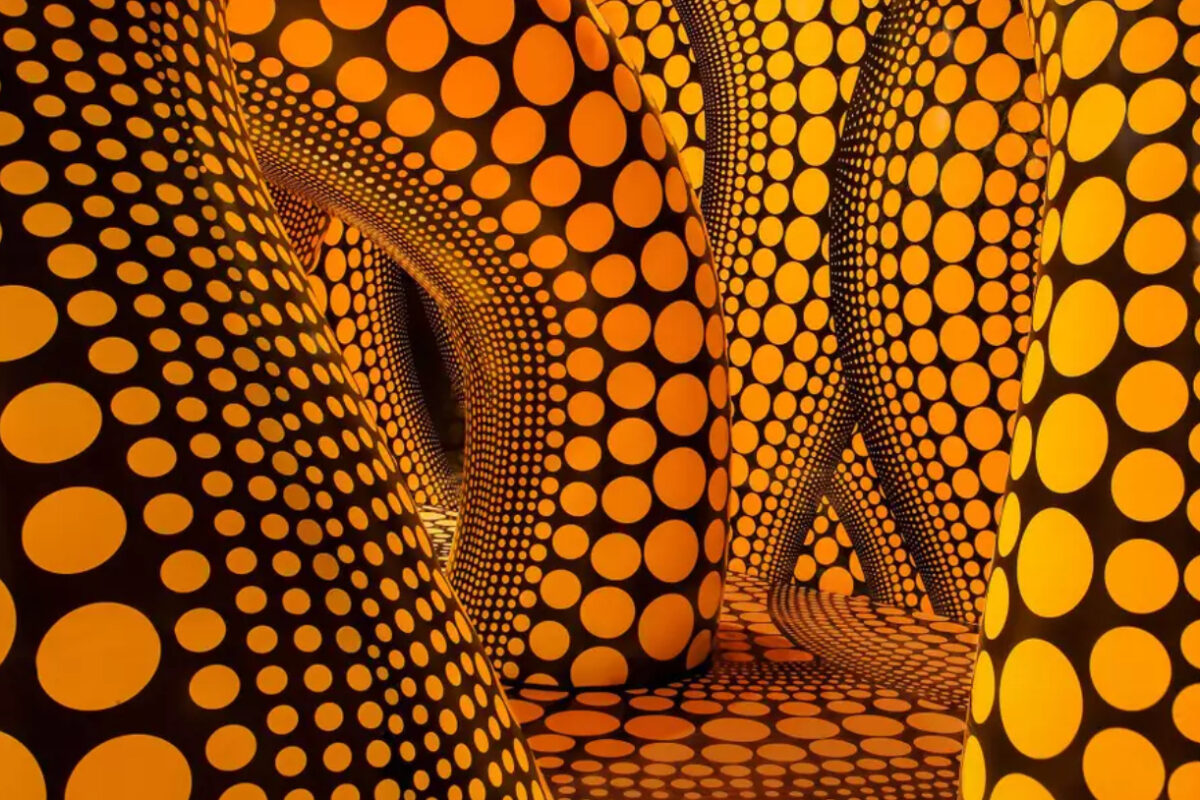
Artists
The Psychology of Kusama
14 Jul 2025 | 3 min read

Artists
Yayoi Kusama breaks records with the most successful exhibition in Australian history
17 Apr 2025

Artists
Yayoi Kusama at 96: A Celebration of the World's Best-Selling Female Artist
22 Mar 2025 | 3 min read

Artists
Hang-Up's Top Exhibitions of 2024
23 Dec 2024 | 5 min read

Artists
10 Facts About Yayoi Kusama
30 Nov 2024 | 9 min read
Exhibitions
Yayoi Kusama at Victoria Miro
21 Oct 2024
Artists
Food Meets Art
7 Aug 2023 | 4 min read
Art Market
Art Market Insight | What, Why and How To Invest
19 Jul 2022
More from Artists
Artists
The Diverse Techniques of Yayoi Kusama
21 Aug 2025 | 2 min read

Artists
Haring Decoded: The Symbolism of His Iconic Dog
12 Aug 2025 | 2 min read
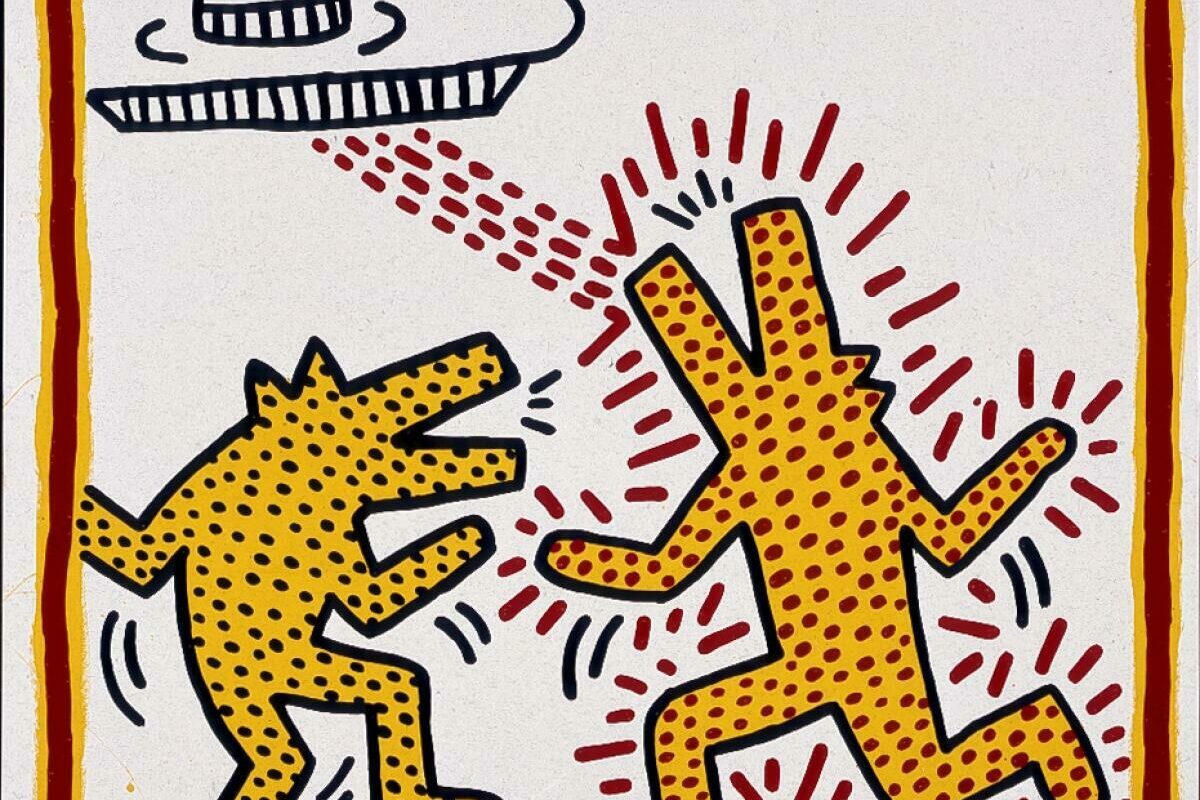
Artists
Happy Birthday Andy Warhol, The King of Pop Art
6 Aug 2025
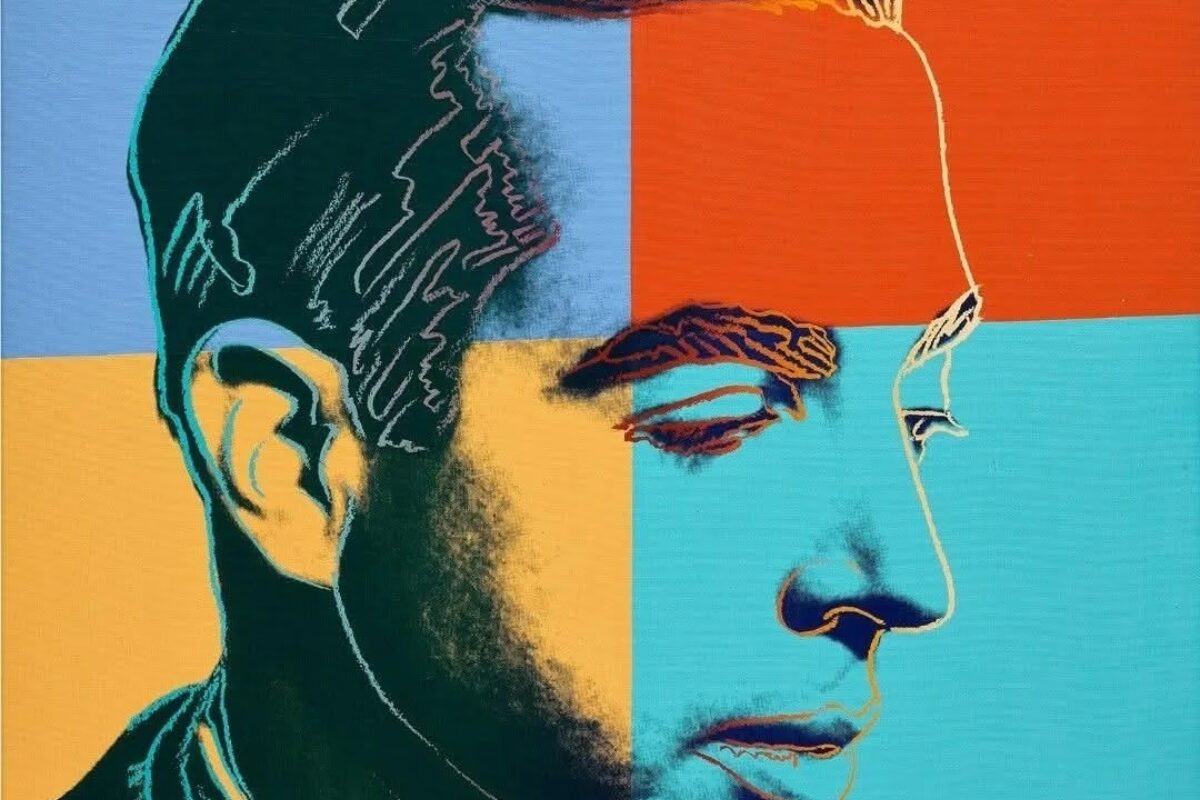
Artists
The Psychology of Kusama
14 Jul 2025 | 3 min read

Artists
From Rothko to Ruscha: Unpacking Harland Miller’s Influences
10 Jul 2025 | 3 min read
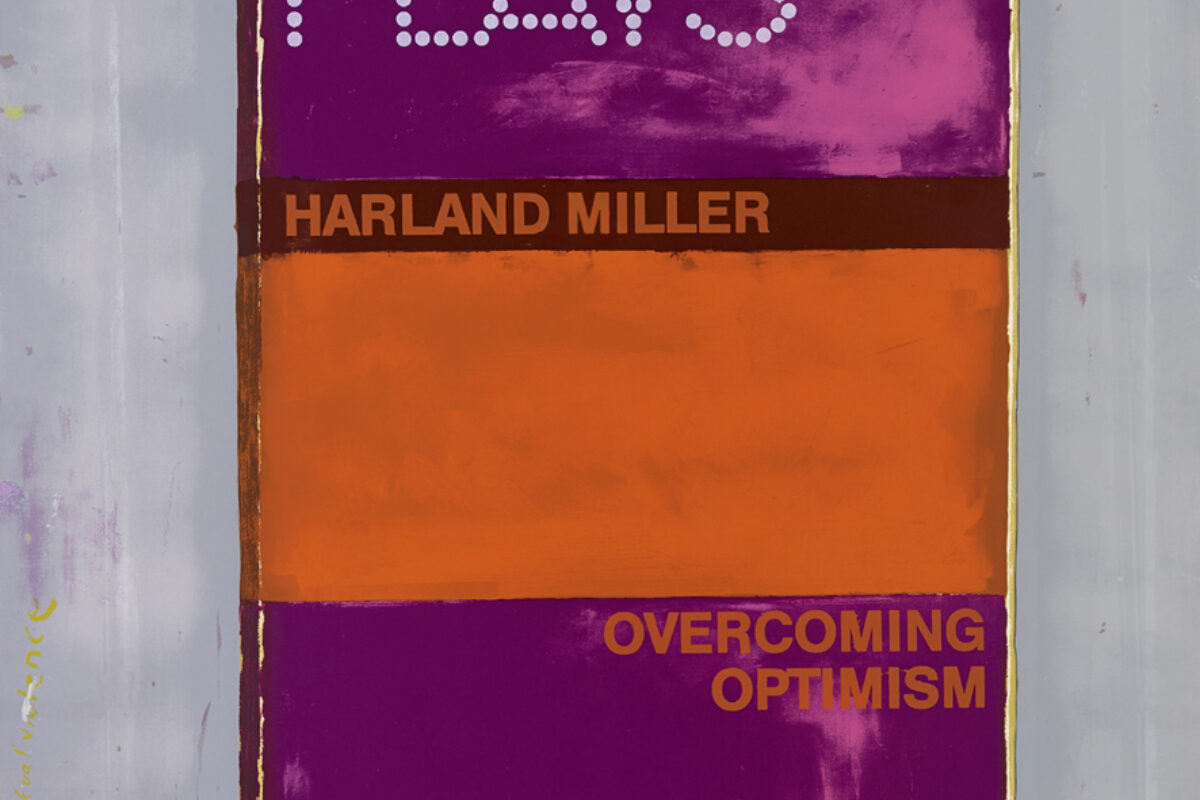
Artists
Decoded: David Shrigley
8 Jul 2025 | 2 min read

Artists
Is David Hockney the Most Important Living Artist?
2 Jul 2025

Artists
Top 10 Selling Warhol Sets
15 Jun 2025 | 2 min read

Artists
David Hockney | 5 Groundbreaking Moments
23 Apr 2025 | 3 min read
